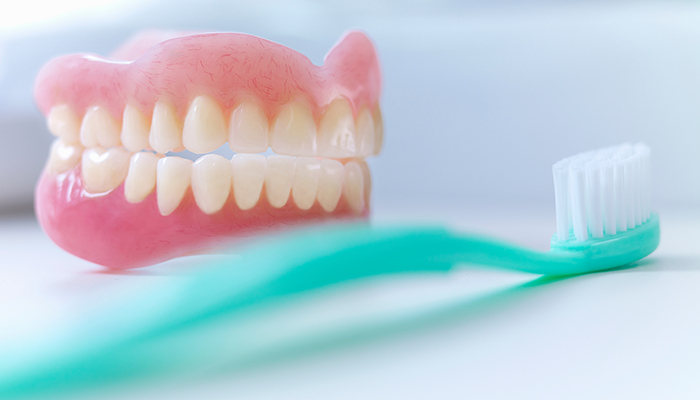
Dentures need the same level of care and attention as natural teeth do. Bacteria and fungi that grow on teeth can also infect a dental appliance. Pressure spots on the gums can lead to pain and potential infection. Also to problems eating and then weight loss. In addition, poor denture care can result in stains on the teeth and bad breath.
Encourage your family member to develop a solid routine.
- After eating. Remove and rinse denture(s) to clean off any remaining bits of food. Also rinse mouth.
- Twice a day. Brush the dentures using a soft-bristle brush and nonabrasive cleaner. Brush the teeth and areas that are in contact with the gums or where a dental fixative is applied.
- At bedtime. Remove dentures and soak them overnight in a denture-cleaning solution. In the morning, rinse the dentures before putting them back in the mouth. Empty and dry the soaking container. Leave it open for the day.
- Yearly. See the dentist at least every 12 months. He or she can assess mouth health, check denture fit, and clean the dentures professionally.
Keep in mind that dentures are delicate.
- Clean or handle them over a basin that is filled with water or lined with a soft cloth in case they are dropped.
- Use cool or warm water. Water that is too hot can warp dentures.
- Ask your dental hygienist to recommend brushes and cleaners. Regular toothbrushes are too harsh.
- Most dentures should not be allowed to sit in the air and dry out completely.
Call the dentist if your relative complains of pain or has difficulty wearing dentures. There may be a sore on the gums, or the dentures may need to be adjusted because of changing weight, etc.
Continue to schedule regular dental exams. With proper care, dentures can last five to ten years.